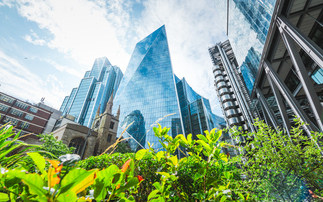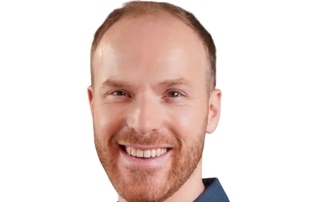Unilever chief executive explains how businesses can play a critical role in ensuring the UN's new development targets are met
Today sees the launch of the UN's Sustainable Development Goals (SDG) summit in New York, where world leaders are expected to ratify a raft of new development goals to be met by 2030.
The SDGs will replace the Millenium Development Goals (MDGs) and will see nations sign up to 17 over-arching goals backed by more than 150 more specific targets. They have been developed with considerable in-put from business leaders and, coming in the run up to the UN's crucial climate summit at the end of the year, they focus on tackling environmental challenges as well as alleviating poverty.
The global effort to deliver on targets ranging from combatting climate change to delivering sustainable energy to all and protecting biodiversity will have huge implications for businesses and economies around the world, with the targets expected to require levels of investment and innovation that comfortably exceed that needed to meet the MDGs.
BusinessGreen caught up via email with one of the business leaders most heavily involved in the development of the new targets, Unilever chief executive Paul Polman, to discuss how the SDGs will shape the way businesses operate over the next 15 years.
BusinessGreen: How would you summarise your involvement this week?
Paul Polman: Unilever is involved in the SDG agenda as we fundamentally believe these are challenges that need to be addressed for economies, businesses and society to function. We have hardwired sustainability into the heart of everything we do across the business - our operations, innovations, our brands and our whole philosophy. There is not just a moral imperative to be sustainable but a clear business case too.
I will be in New York this week alongside a number of our other executives. I had the privilege of serving on the Secretary General's High Level Panel of eminent persons on the Post-2015 Development Agenda. One key lesson from the MDGs was to involve all the key decision makers from the beginning. By doing this the new global goals have been more inclusive than ever before, involving policymakers, business, civil society, and citizens. Getting to this moment today has taken enormous work on all sides.
Being discussed at the summit this week will be some of the most urgent issues facing the world. We hope that by the end we will have clear commitments to tackle poverty, inequality and climate change. The talks are essential to our very future.
So why are we involved? Because I believe it is the responsibility of business to promote sustainability - but there's a clear business argument too. Sustainability has always been in Unilever's DNA.
Our Unilever Sustainable Living Plan (USLP) is our blueprint for operating sustainably across the business - it sets clear and measurable targets. For example, we have already addressed some significant environmental and social challenges: moving to sustainable sourcing, reducing CO2 emissions from our factories, moving to zero waste to landfill - and ensuring that we respect and promote social and human rights, not just in our own operations, but throughout the entire supply chain. All of these issues are addressed through the new global goals and we will continue to work in partnership on their delivery and implementation.
Our brands with a sustainable purpose like Dove, Lifebuoy, Domestos, Ben & Jerry's and our water purification brand, Pureit are growing strongly and creating movements for change. The global goals being discussed this week also have a strong correlation with the social mission of many of our brands.
Did the MDGs have an impact on the business community? Can you point to evidence of how they changed the business and investment environment?
The MDGs had a big impact on the global community. They had an impact on business and business has had an impact on them. Given that in emerging markets, business accounts for 90 per cent of job creation, you would expect that to be the case. But the world has changed since the dawn of the MDGs. Business has been through dramatic shifts in the last five years alone and levels of CEO engagement and understanding on the importance of these issues is at an all-time high.
The case for action is very clear. Just look at the UN Global Compact - with 8,000 member companies it is pioneering new blueprints for how business is done; likewise the WBCSD with a global network of over 35,000 companies. Over 1,000 signed the World Bank statement calling for a price on carbon. Who would have expected this five years ago? Working collaboratively with these organisations and networks, with like-minded partners, is the key to being able to drive transformational change across the industry.
How do you expect the SDGs to impact businesses?
Business has played an important part in shaping the new SDGs and it will therefore play an important role in realising it. But what's increasingly clear is that we need more businesses to embrace the sustainable development agenda and treat it as an important driver of core business strategies and investment decisions.
Sustainable business models are vital to long-term inclusive growth and value creation. Our voice, and our leadership, in supporting governments to take decisive action on implementing the SDGs is paramount. And our actions send market signals that the world really can change path, and business leaders are committed to making it happen.
What would you say to those who argue big business should not play a role in development politics?
We should focus our attention on what's at stake here. As a business we have scale and reach, and therefore an enormous possibility to transform markets. We know that delivering the goals can happen only if the public sector, private sector and civil society all step up and demonstrate real leadership. And here, the business community is - and must continue to be - a key partner in advancing the sustainable development agenda.
There is no business case for enduring poverty - after all, business cannot stay on the sidelines of a system that gives it life in the first place. Businesses can help - through investment, job creation and women's empowerment which aid economic development and stability.
The big change between the SDGs and the MDGs is the way environmental issues have been incorporated - how did this come about and why do you think it matters?
Learning from the MDG process has been essential, building on successes and equally taking lessons from what's not worked so well. We cannot make progress in improving the lives of people if we don't also protect the planet we share. After all, it is often the poorest and those who've had least to do with causing climate change that are most affected by it. The SDGs build on the MDGs by recognising that eradicating poverty and protecting our natural resources are key elements of longer-term sustainable development. This message came across very clearly in the Pope's Encyclical earlier this summer. The good news is that transformation is already taking place - and in 2015 we have in front of us a perhaps once in a lifetime opportunity to end poverty, and deal with climate change.









